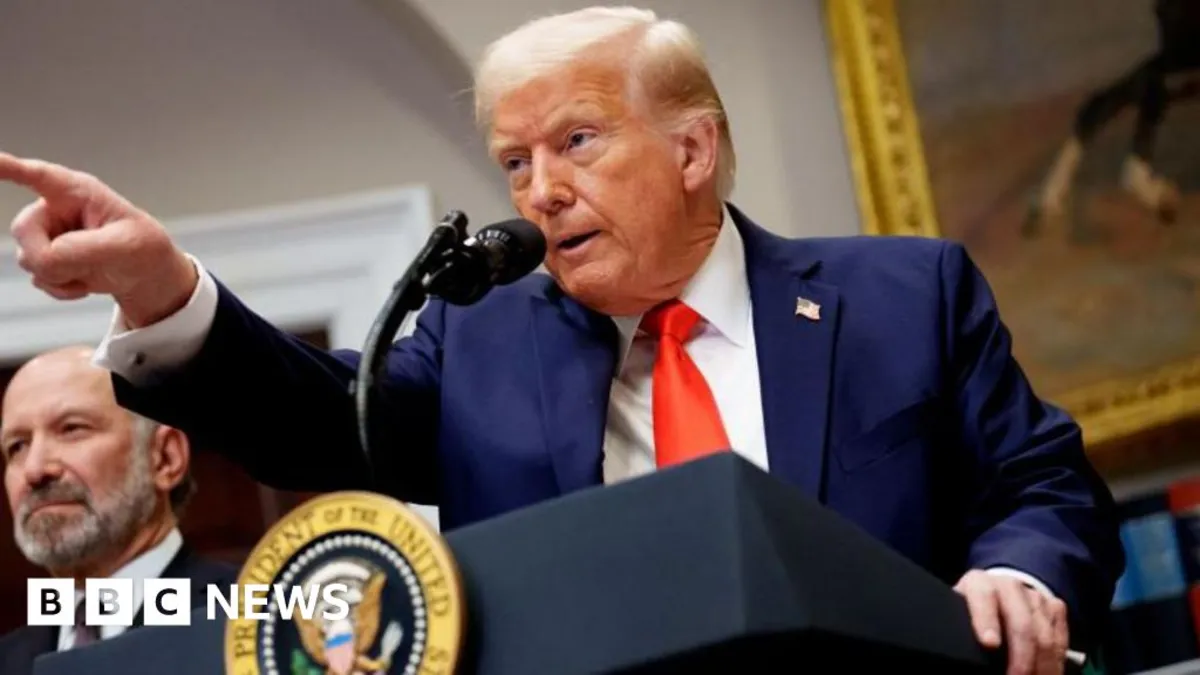
US President Donald Trump has escalated the ongoing trade war by pledging to impose additional tariffs following the introduction of import taxes on steel and aluminium. This move has prompted swift retaliation from both the European Union (EU) and Canada, raising concerns about the potential economic fallout.
In a recent statement, Trump emphasized his intention to respond to these countermeasures, asserting, "Whatever they charge us with, we're charging them." This declaration marks a significant escalation in a trade conflict that has already unsettled financial markets globally, as stakeholders worry about the implications for economies and consumers.
On Wednesday, Trump announced a comprehensive plan to expand US tariffs on steel and aluminium. This includes a blanket duty of 25% and the termination of previous exemptions for certain countries. Earlier this month, the administration raised levies on Chinese imports to a minimum of 20%, further intensifying the trade tensions.
Trump has indicated that he may also impose tariffs on additional items such as copper, lumber, and automobiles. In response to these developments, leaders from Canada and Europe have condemned the new metals taxes as unwarranted, retaliating with their own tariffs on a variety of US goods.
Countries like the UK, Australia, Mexico, and Brazil, which are significant suppliers of metals to the US, have refrained from immediate retaliation. UK Prime Minister Sir Keir Starmer expressed disappointment over the global tariffs but noted the UK would adopt a pragmatic stance, stating, "We are negotiating a deal which includes tariffs if we succeed." He emphasized that all options remain on the table.
Canada announced plans to implement a 25% tax on nearly C$30 billion (approximately $20 billion; £16 billion) worth of US products, which includes steel, computers, and sports equipment. Prime Minister-designate Mark Carney indicated a willingness to negotiate a renewed trade agreement with Trump, provided there is respect for Canadian sovereignty.
Meanwhile, the EU intends to increase its tariffs on up to €26 billion (around $28 billion; £22 billion) worth of US goods, effective from April 1. EU President Ursula von der Leyen stated that the response would be strong yet proportionate, highlighting the potential job losses and price increases that could arise from these tariffs.
While Trump aims to bolster US steel and aluminium production in the long term, critics argue that the immediate effects of the tariffs will likely lead to higher prices for consumers and slow economic growth. Major food manufacturers, including Quaker Oats and Folgers Coffee, have reached out to Trump for targeted exemptions on imports such as cocoa and fruit that are not available domestically. This letter, sent by the Consumer Brands Association, highlights concerns over the impact of import taxes on essential ingredients.
The import taxes are predicted to decrease demand for non-US made steel and aluminium, adversely affecting manufacturers in other countries. The EU estimates that the latest US tariffs will impact approximately 5% of its total exports to the US, while around 90% of Canada's steel and aluminium exports are directed to the US market.
Following the announcement of the new tariffs, US stock markets displayed mixed reactions. The Dow Jones Industrial Average closed down by 0.2%, while the S&P 500 rose nearly 0.5%, and the Nasdaq surged by 1.2%. In a recent appearance alongside Irish Prime Minister Taoiseach Micheál Martin, Trump reiterated his commitment to the trade conflict, expressing dissatisfaction with EU trade policies and citing perceived disadvantages for US farm products and automobiles.
As the trade war continues to unfold, industry experts and consumers alike are left to ponder the long-term implications of these tariffs on both sides of the Atlantic.